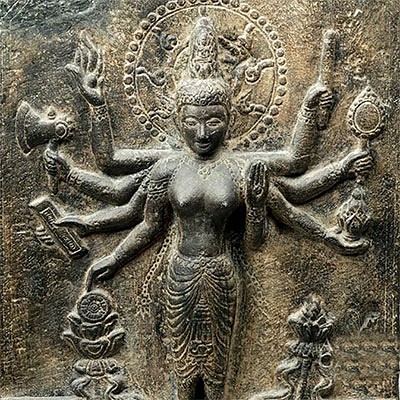Early 20th C. Papua New Guinea Fiber & Clay Mendi Doll
Lot 222
About Seller
Artemis Gallery
686 S Taylor Ave, Ste 106
Louisville, CO 80027
United States
Selling antiquities, ancient and ethnographic art online since 1993, Artemis Gallery specializes in Classical Antiquities (Egyptian, Greek, Roman, Near Eastern), Asian, Pre-Columbian, African / Tribal / Oceanographic art. Our extensive inventory includes pottery, stone, metal, wood, glass and textil...Read more
Categories
Estimate:
$600 - $900
Absentee vs Live bid
Two ways to bid:
- Leave a max absentee bid and the platform will bid on your behalf up to your maximum bid during the live auction.
- Bid live during the auction and your bids will be submitted real-time to the auctioneer.
Bid Increments
| Price | Bid Increment |
|---|---|
| $0 | $25 |
| $300 | $50 |
| $1,000 | $100 |
| $2,000 | $250 |
| $5,000 | $500 |
| $10,000 | $1,000 |
| $20,000 | $2,500 |
| $50,000 | $5,000 |
| $100,000 | $10,000 |
| $200,000 | $20,000 |
About Auction
By Artemis Gallery
Feb 4, 2021
Set Reminder
2021-02-04 10:00:00
2021-02-04 10:00:00
America/New_York
Bidsquare
Bidsquare : CLEARANCE Asian | Antiquities | Ethnographic
https://www.bidsquare.com/auctions/artemis-gallery/clearance-asian-antiquities-ethnographic-6361
Featuring discounted pricing on Asian art, classical antiquities from Egypt, Greece, Italy, and the Near East...plus Pre-Columbian, Tribal, Russian Icons, Spanish Colonial, Fine Art, more! Starting prices have been reduced up to 65% from original auction prices - perfect for dealers and collectors! Artemis Gallery info@artemisgallery.com
Featuring discounted pricing on Asian art, classical antiquities from Egypt, Greece, Italy, and the Near East...plus Pre-Columbian, Tribal, Russian Icons, Spanish Colonial, Fine Art, more! Starting prices have been reduced up to 65% from original auction prices - perfect for dealers and collectors! Artemis Gallery info@artemisgallery.com
- Lot Description
**First Time At Auction**
Oceania, Papua New Guinea, Southern Highlands Region, Mendi Valley, ca. early 20th century CE. A wonderful Mendi doll (also known as a "pay back" doll) hand-built from wound natural fiber, pandanus leaves, and clay and adorned in pigments of chocolate brown, pale taupe, and crimson. Standing up straight, the intriguing figure presents with a slender body, a long neck, thick arms, and spread, straight legs. The artist has taken time to intricately form each and every finger and toe of this lovely gentleman. Topped with a plumed headdress of hemispherical form made of flower seeds and a shell band, his fascinating visage displays a pair of deep-set, inlaid shell eyes, a downward-pointing nose, and an open mouth bearing two rows of inlaid shell teeth. He is dressed in a netted loin cloth make of bilum fabric on his front and raffia on his back, both suspended at his waist by a palm leaf belt, along with a pair of vegetal reed anklets. Size: 8.75" W x 20" H (22.2 cm x 50.8 cm)
The figure's neck is adorned with lavish ornaments including a four-layered necklace of white shells, a lengthy strand of bamboo reeds, and a crescent-shaped kina shell of a golden orange hue. Kina shells are not only used as currency amongst peoples of the Southern and Western Highlands regions of Papua New Guinea, but frequently serve the purpose of a bride price.
Mendi or payback dolls would be crafted if a person was killed by an enemy or rival from another village. The family of the deceased would make an effigy of the dead with woven and tied plant material covered in clay and often decorate it with symbolic and personal ornaments including feathers, shells and often human hair. The doll would be a reminder that payback or revenge was needed. Payback would possibly be negotiated with items of value in Papua New Guinea. It could consist of food, shell currency, cash, livestock or any combination that was agreed upon. Pigs are often most prized. If compensation for the death was not received, revenge would be taken with an eye for an eye, hence the term payback.
Provenance: private Lowe collection, Salt Lake City, Utah, USA, acquired in a village in the Mendi Valley of the Southern Highlands of Papua New Guinea in 1986
All items legal to buy/sell under U.S. Statute covering cultural patrimony Code 2600, CHAPTER 14, and are guaranteed to be as described or your money back.
A Certificate of Authenticity will accompany all winning bids.
We ship worldwide and handle all shipping in-house for your convenience.
#138343Expected surface wear commensurate with age, as shown. Otherwise, excellent and intact with lovely pigments and impressive remains of shells, feathers, and reeds.Condition
- Shipping Info
-
All shipping is handled in-house for your convenience. Your invoice from Artemis Gallery will include shipping calculation instructions. If in doubt, please inquire BEFORE bidding for estimated shipping costs for individual items.
-
- Buyer's Premium



 EUR
EUR CAD
CAD AUD
AUD GBP
GBP MXN
MXN HKD
HKD CNY
CNY MYR
MYR SEK
SEK SGD
SGD CHF
CHF THB
THB














